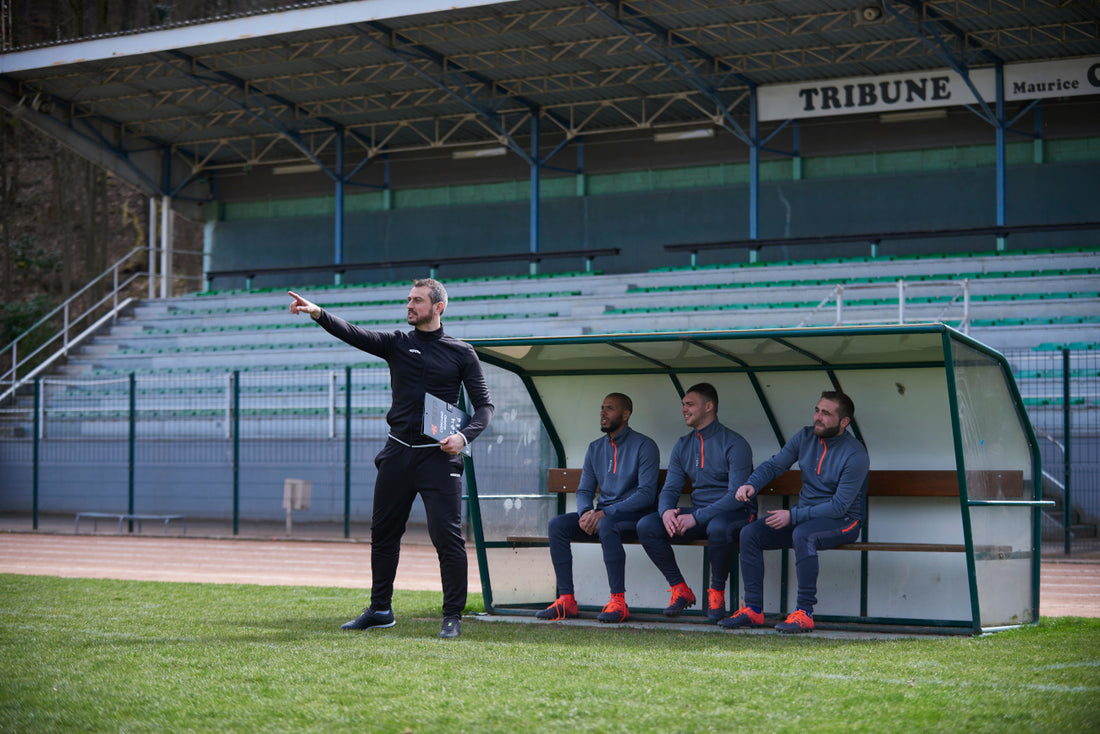Coaching a soccer team is no easy task. Looking for some advice on how to improve as a coach and keep your job for more than three months? Then stay right here because I've got just what you need.
Understanding the game and having a tactical sense
A coach is responsible for the level of play of his or her team and, in order to properly communicate soccer tactics and techniques, he or she must master them himself or herself. Certain players will find it difficult to respect a trainer who doesn't try to set up a certain system of play or who has a hard time grasping the differences between tactical formations.
This type of deep understanding will allow you to make good decisions at match time. Making adjustments to your team based on your opponent, or making the right substitution at the right time, can totally change the direction of a match. Would France have won the Euro 2000 without Pirès, Wiltord and Trezeguet coming on as subs? Quite possibly not.
It's however important to acknowledge that the coach's job will differ depending on the age and skill level of his/her players. Young players will need simple and precise explanations in order to shine on the field. Older soccer players playing at a higher level will be more in need of a set of principles and instructions to improve their performance. In any case, it's essential to properly manage what is a central part of the life of a soccer player: training.
Managing training sessions and preparing your team physically and technically
It's essential to prepare your team to keep up the level of effort throughout the entire season. It's sometimes difficult to keep your group motivated during pre-season prep, in large part made up of muscle strengthening and cardio workouts—typically not players' favorite activities! To get the most out of those times, I recommend adding some exercises that involve touching the ball at the end of each session to keep your players motivated. The pre-season is also a good opportunity to organize some team activities together, like playing together at a park for fun or going to watch a soccer match. The team spirit that such activities build will be important during the season's tough moments, and believe me, they will come!
The pre-season is also an opportunity for you to test your players, try out different tactics, and, above all, get your team on the same page when it comes to work methods and playing systems.
During the season don't forget to vary the exercises from one session to the next to avoid boredom. And don't be afraid to include workshops on the basics like passing, dribbling, and shooting, to help players reinforce or improve on the fundamentals. Often it's helpful to wrap up a training session with some scrimmage play in order to prepare for the weekend match and get your team into the mindset for match conditions. And don't forget to praise and reward your team when they perform well, in whatever way seems best to you.
Managing a group and help everyone to get along
To be a good coach it's essential to be able to manage a group of individuals. This means having a good understanding of human psychology. In soccer, as in any team sport, the ability to manage the different personalities on the team is often what makes the difference. The ultimate goal is to create a united team made up of players that are willing to fight for each other. Don't forget to have regular individual conversations with players and to communicate with your team in the locker room as that's often when the seeds of success are sown. Lastly, it's essential to impart confidence in your team.
















